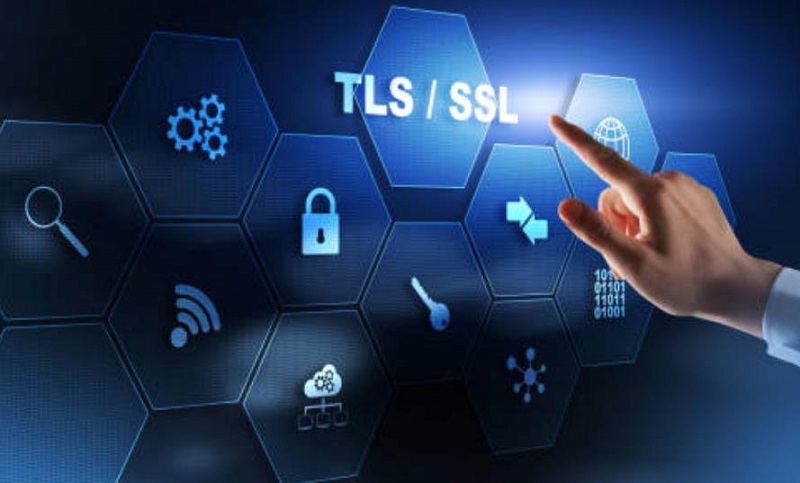The advent of high-speed internet has allowed us access to several websites, and we can have information at our fingertips. As the number of internet users increases, there has also been an increase in the number of successful data breaches.
It can lead to a severe loss of customer trust along with lawsuits and even penalties imposed by government authorities. The 2020 Data Breach Investigations Report by Verizon states that at least 45% of the breaches were due to hacking, 22 were due to social attacks, and 17% were due to malware.
Cybercriminals are always ahead in the technology curve that requires businesses to be on their guard too. It becomes necessary that there are adequate systems in place that will help to prevent such attacks by cybercriminals.
Robust cybersecurity policies can help businesses save millions of dollars, making cybersecurity policies have a high return on investment. The article will discuss six of the best cybersecurity management strategies.
Navigation of Contents
Have a strong password policy
Studies show that most data breaches are due to a lack of knowledge about business security. It starts by ensuring that all employees use a strong password that adheres to the global best practices. The passwords must be long enough, and it is better to use a single sign-on system if the employees use several applications. A password manager can also be of help and can allow the employees to use strong passwords and also store the passwords to be used.
The IT teams must also ensure they use strong passwords for the networks. It will prevent any forced break-ins by cybercriminals. There must be proper audit trails to track access to the network systems. Only authorized personnel must be allowed access through a stringent process and only using their user credentials.
Using SSL/ TLS technology
Businesses must install an SSL certificate that will encrypt the communication between the web server and the visitor's browser. It will prevent any hacker from gaining unauthorized access to sensitive communication being exchanged. Several Certificate Authorities offer SSL certificates. You can receive the certificate within a few days based on the type of certificate.
If you have an e-commerce website, you must adhere to the PCI-DSS guidelines to undertake online transactions. As a result, it becomes necessary to procure an SSL certificate. If there are several first-level sub-domains to secure, you can utilize a Wildcard SSL certificate. Moving to the HTTPS protocol can also lead to SEO brownie points and prevent any browser security warnings.
Ensure employee privacy
While creating robust cybersecurity management strategies, it is essential to ensure employee privacy. You would often see employees working in public places, but it should be avoided if dealing with sensitive information. The internal teams must ensure that all employees have user credentials that are not shared among themselves.
Of late, several organizations are advocating work from home that increases the risk of a data breach. The IT team must make these employees use a VPN to connect to the official network and access the website's back-end. You must also inform employees that they must not connect their laptops to any public wi-fi system.
Keep the applications updated
As a business security practice, you must update the incumbent applications on an ongoing basis. It is essential to note that renowned developers plug any vulnerabilities in earlier versions through periodic updates. The IT team must send reminders to automatically upload the patches whenever they are made available by the developers. It would be best if you did not use any free software as they are more prone to be breached by hackers.
You must also update the content management system periodically. The theme and the associated plug-ins must be updated regularly too. Another point to note is that it is safe to use premium themes as they are updated more frequently than the free counterparts. Similarly, the use of free plug-ins must be limited to the bare minimum too.
Practice an intense training program
The IT team must keep all employees informed about the cybersecurity management strategies. You must have a detailed IT policy, and the new employees must be provided adequate training on them. You must organise periodic training and workshop sessions for the existing employees too. The various aspects of business security must be covered in the training sessions.
Businesses may find it economical to outsource some parts of the company. But it would help if you kept in mind that your partners can also lead to a data breach. It is equally essential that you loop in the third-party contractors and adhere to your IT policies. You must also train them in your IT policies and undertake periodic assessments to check their compliance levels.
Securing your IT infrastructure
You must act as a devil's advocate and undertake penetration testing for your website and your networks. Periodic assessments must be conducted of your web host. Their credentials must also be checked before finalizing the alliance with them.
The IT team must also simulate phishing events that will also help to train the employees in a natural business environment. The employees will also have first-hand experience of the effects of such an attack. The employees must refrain from opening unknown emails and should not click on malicious links.
The team must also take periodic backup of the website at frequent intervals. It is suggested that there must be a weekly backup of the entire backup followed up by incremental backup every one or two days. The backup must also be stored at a separate location and restart the systems in the unfortunate event of a data breach.
Conclusion
It has been seen that both SMEs and industry behemoths can be affected by a data breach. It can lead to loss of reputation and invite punitive action as well. Companies must invest proactively in business security that will involve detecting any insider threats. All activities of the employees must be recorded, and you must install an SSL certificate too.
Though the cloud may have some risks, it is better to use cloud storage as an added economical option. Also, invest in robust IT infrastructure together with an antivirus and a firewall that can prevent cyberattacks to a great extent. Implementing these processes may take some time, but it is worth the effort and resources it takes.





